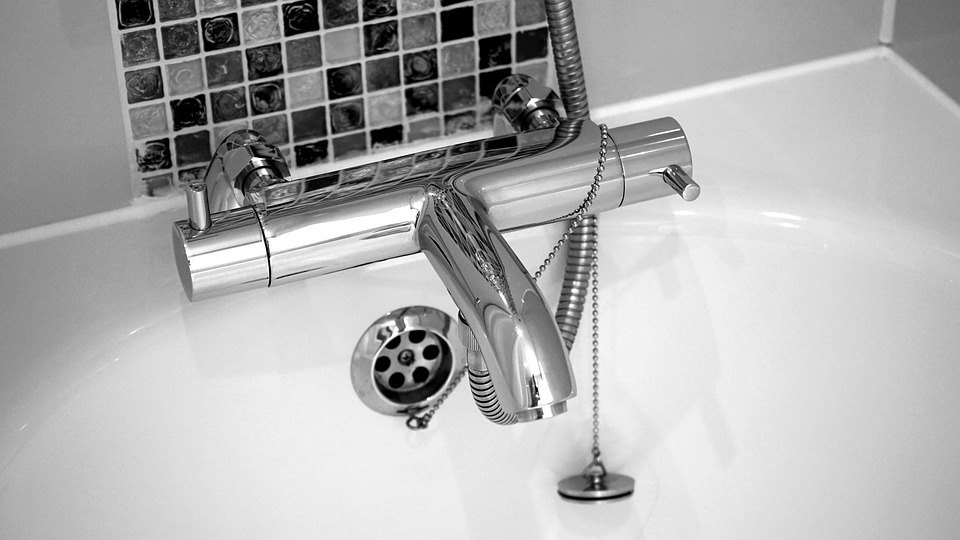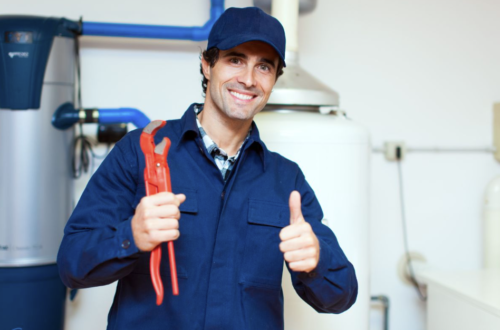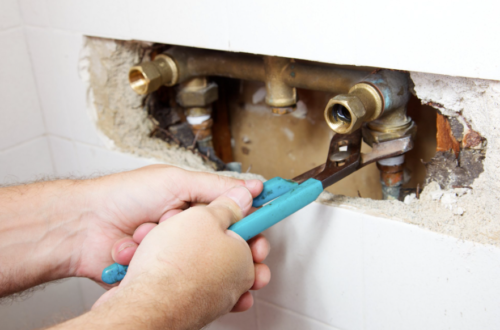The Ultimate Guide to Plumbing Maintenance: Tips and Tricks for a Healthy Home
Introduction
Proper plumbing maintenance is crucial for the overall health and functionality of your home. Neglecting your plumbing system can lead to costly repairs, water damage, and even health hazards. In this ultimate guide, we will provide you with essential tips and tricks to keep your plumbing system in top shape, ensuring a healthy and efficient home.
1. Regular Inspections and Maintenance
Regular inspections of your plumbing system are vital to catch any potential issues before they escalate into major problems. It is recommended to hire a professional plumber for a thorough inspection at least once a year. They can identify hidden leaks, check water pressure, inspect pipes, and ensure proper functioning of fixtures.
Maintenance tasks such as cleaning drains, checking for leaks, and inspecting water heaters should be performed periodically. Flushing your water heater annually helps remove sediment buildup, improving efficiency and extending its lifespan.
2. Proper Drain Care
Clogged drains are a common plumbing issue that can disrupt your daily routine. To prevent clogs, avoid pouring grease, oil, or food scraps down the drain. Use drain guards or screens to catch hair and debris. Regularly clean these screens to maintain their effectiveness.
Once a month, flush your drains with hot water to prevent buildup. If you encounter a slow drain, try using a plunger or a drain snake to clear the blockage. Avoid using chemical drain cleaners as they can damage pipes and harm the environment.
3. Protecting Pipes from Freezing
In colder climates, frozen pipes can cause significant damage. To protect your pipes, insulate them with foam sleeves or heat tape. Disconnect and drain outdoor hoses before winter to prevent frozen pipes. During extremely cold weather, allow faucets to drip slightly to keep water flowing and prevent freezing.
4. Avoiding DIY Plumbing Repairs
While it can be tempting to tackle plumbing repairs yourself, it is often best to leave them to professionals. DIY repairs can worsen the problem and lead to costly repairs down the line. Hiring a licensed plumber ensures that repairs are done correctly and safely, saving you time, money, and potential headaches.
5. Water Pressure Regulation
High water pressure can strain your plumbing system, leading to leaks, burst pipes, and premature wear. Installing a pressure regulator can help maintain optimal water pressure throughout your home. A pressure gauge can be used to monitor and adjust the pressure as needed.
6. Proper Toilet Maintenance
Toilets are one of the most frequently used fixtures in a home, and proper maintenance is essential to prevent clogs and leaks. Avoid flushing excessive toilet paper, wipes, or other non-flushable items. Regularly inspect the toilet tank and bowl for any leaks or cracks.
If you notice a constantly running toilet or water pooling around the base, it may be a sign of a leak or faulty seal. Promptly address these issues to avoid wasting water and potential water damage.
7. The Importance of Water Softeners
Hard water can wreak havoc on your plumbing system, causing mineral buildup, reduced water flow, and damage to appliances. Consider installing a water softener to remove minerals like calcium and magnesium from your water supply. This will not only extend the lifespan of your plumbing system but also improve the efficiency of your appliances.
FAQs
Q: How often should I have my plumbing system inspected?
A: It is recommended to have a professional plumber inspect your plumbing system at least once a year to catch any potential issues early on.
Q: What should I do if I have a clogged drain?
A: To clear a clogged drain, you can try using a plunger or a drain snake. Avoid using chemical drain cleaners as they can damage pipes.
Q: Can I attempt to repair plumbing issues myself?
A: While minor repairs can be done by homeowners, it is often best to hire a licensed plumber for more complex plumbing issues to ensure proper and safe repairs.
Q: How can I prevent frozen pipes during winter?
A: To protect your pipes from freezing, insulate them with foam sleeves or heat tape. Disconnect and drain outdoor hoses, and allow faucets to drip slightly during extremely cold weather.
Q: What are the benefits of installing a water softener?
A: Installing a water softener helps remove minerals from your water supply, preventing mineral buildup in your plumbing system and improving the efficiency of your appliances.
Conclusion
By following these essential tips and tricks for plumbing maintenance, you can ensure a healthy and efficient home. Regular inspections, proper drain care, protecting pipes from freezing, avoiding DIY repairs, regulating water pressure, maintaining toilets, and considering water softeners are all crucial aspects of maintaining a well-functioning plumbing system. Remember, when in doubt, always consult with a professional plumber to address any plumbing issues effectively.
For more information on plumbing maintenance, you can read this comprehensive guide on our partner website.






